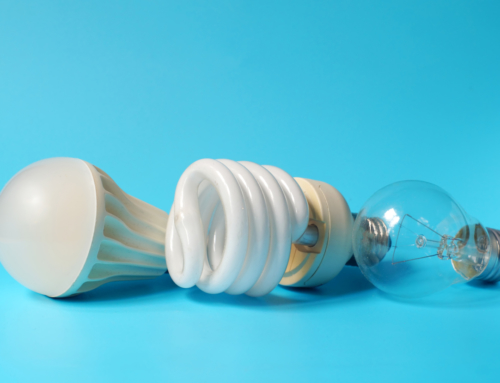Many of us want to be more eco-friendly and actively take steps to be more sustainable in our daily lives, but these efforts have been particularly challenging this past year due to the COVID-19 pandemic. Many of these challenges have been even more prevalent during the winter months.
This is because, in general, we tend to spend more time at home during the winter season, with most of us will working and/or studying from home. In addition to working remotely, many of us have been avoiding large indoor gatherings in an attempt to stay healthy and reduce the spread of the coronavirus. It’s easy to use more energy, and resources altogether, as the days grow colder and we spend more time inside.
Luckily, there are some practical and easy steps you can take to reduce energy waste in the winter and save energy in your home. Keep reading below for some of these useful recommendations.
1. Keep a Consistent Temperature in Your Home
Despite popular belief, turning your heating system off and on as needed is not the most energy-efficient decision. The cycle of warming cold air on high heat is extremely energy-intensive for your boiler, and when you turn off your heating system when it gets too warm, all of that energy is simply wasted. Having your heating system set at a low temperature continuously is the best decision if you want to save energy this winter.
2. Dress Warmer and Bundle up With Blankets
If you’re wondering how to stay warm and comfy this winter if you’re keeping your heating set at a lower temperature, then wonder no more. Staying cozy is as simple as wearing warmer clothes and bundling up with blankets as you are working or watching television, and you get the added benefit of comfort at home!
3. Don’t Block Air Vents and Keep Your Radiator Clear
Placing large furniture items (e.g., beds or couches) will cause that item to absorb the heat instead of your room, thus keeping your room colder. You want a more open area around vents and radiators so you can more effectively heat your living space.
4. Take Advantage of Natural Light
We can’t seem to talk enough about the many wonders that the sun provides. Keeping your curtains closed at night (to trap heat) and open during the day (to naturally warm) is a great way to leverage the sun’s light throughout winter. Another great idea is to position your work or study space near a window so you don’t need to use artificial lighting on sunny winter days.
5. Use Your Kitchen Appliances Wisely
Simple actions in your kitchen can go a long way in helping you conserve electricity, especially during the winter. Some of these actions include: keeping the oven door open after you’re done cooking to allow the excess heat to warm your home, keeping a fully stocked fridge, matching pot sizes to the size of the cooking ranges, and baking multiple items simultaneously.
6. Power Off and Unplug Appliances
Are you done with your computer for the workday? Are you not using your hairdryer or clothing iron every day? Then don’t just switch them off, be sure to unplug them too. Appliances continue to consume electricity even when they’re not turned on, so keeping them on when they are not in use can lead to a significant and unnecessary waste of energy. Consider using a smart power strip to help you monitor and maintain all of your devices.
Implementing these easy energy-saving tips can certainly help you have an eco-friendlier winter season. The final helpful tip is to look at where you are getting your energy from. Spring Power and Gas is an innovative energy supply company that takes initiative to be involved in the community. Click here to learn more about us and some of the amazing non-profits we can support through our Ecogold Environmental Fund.







